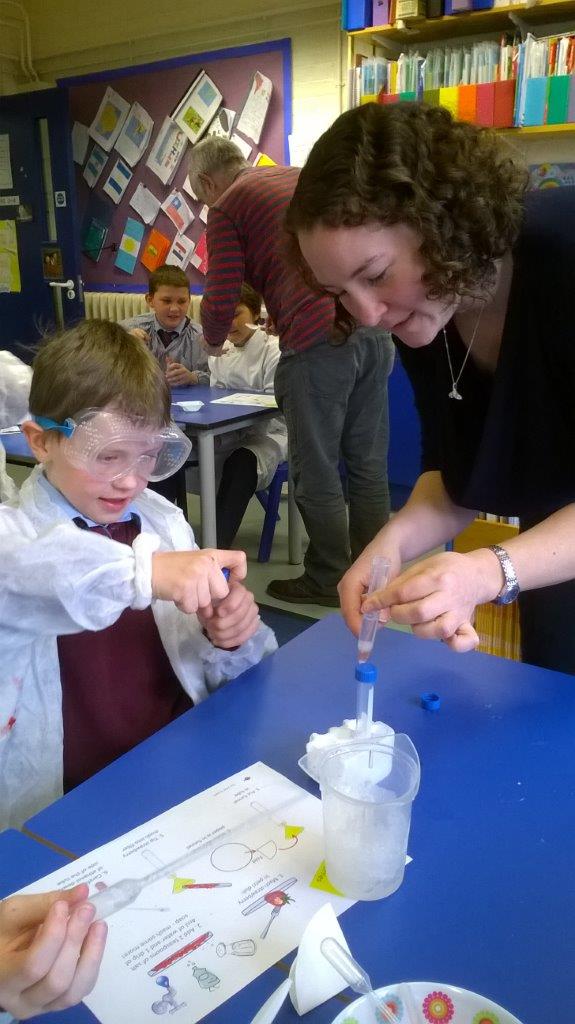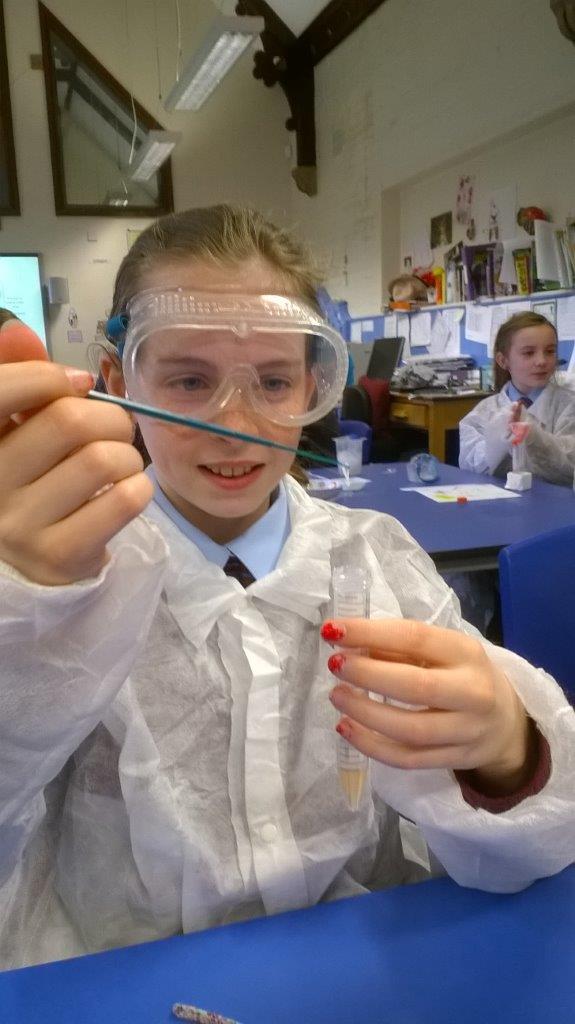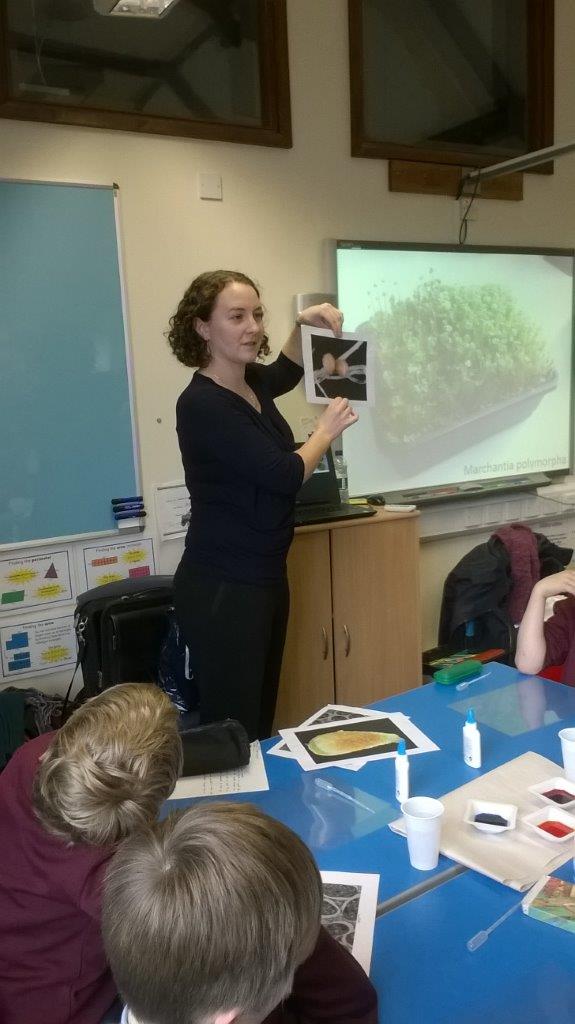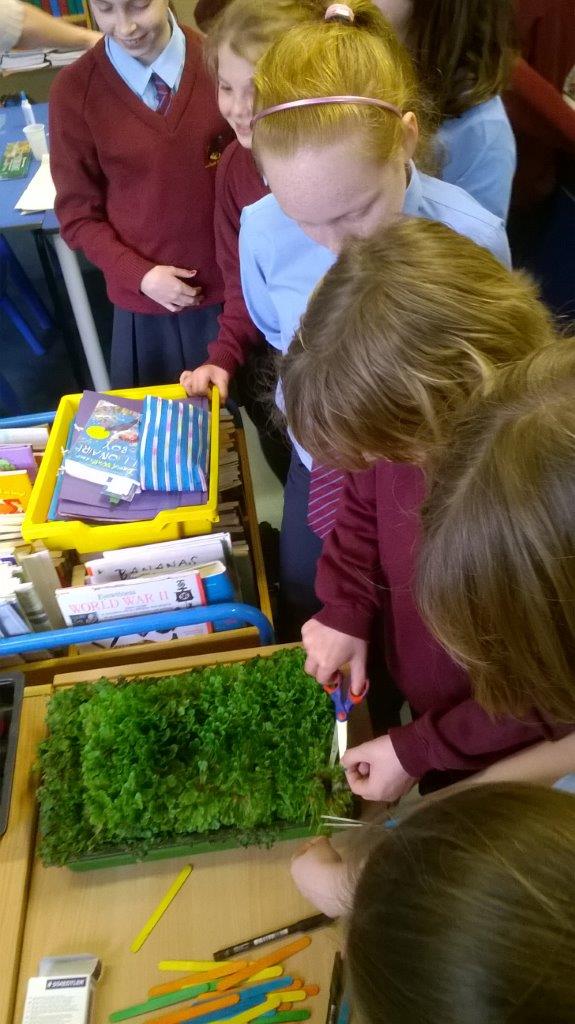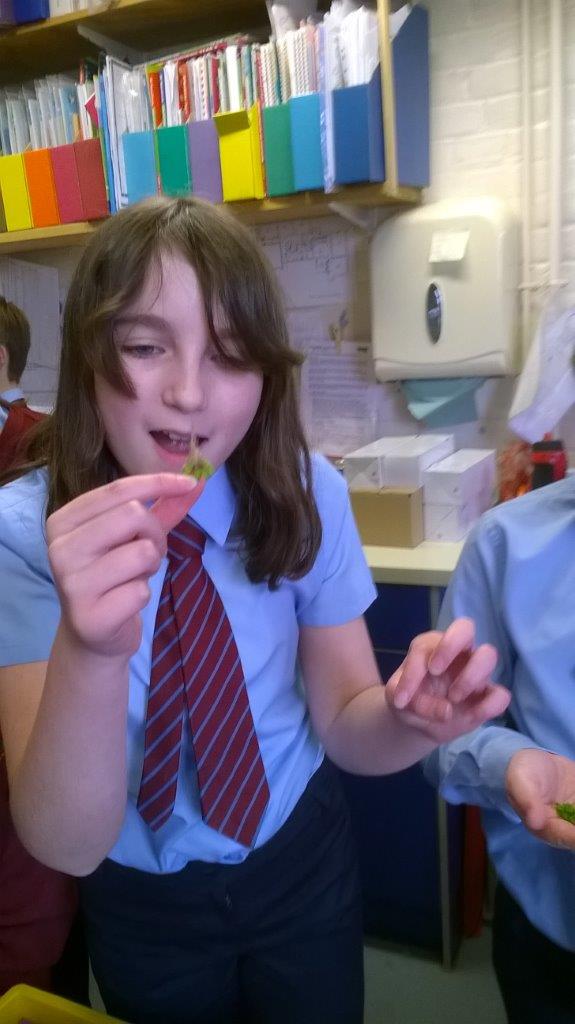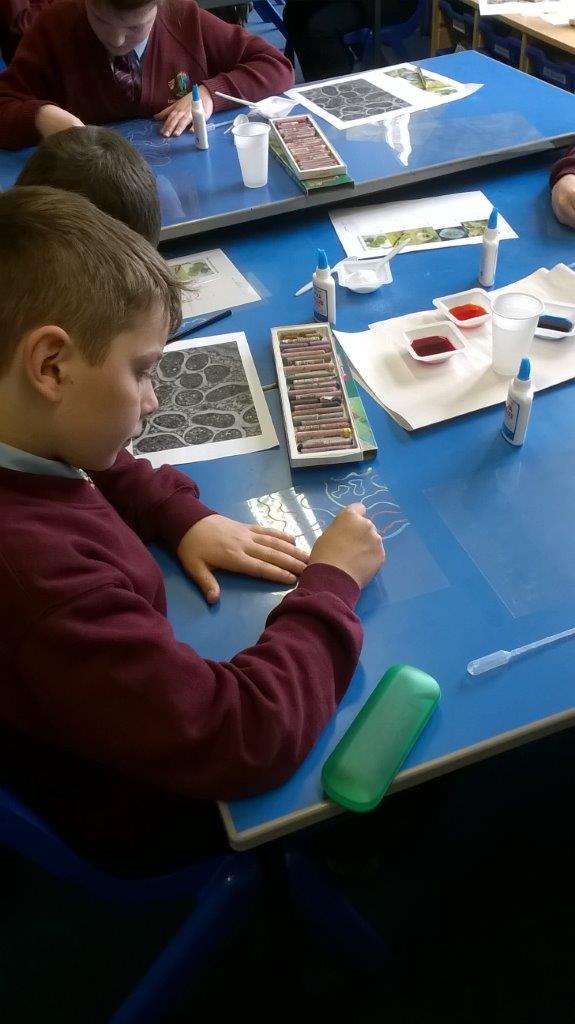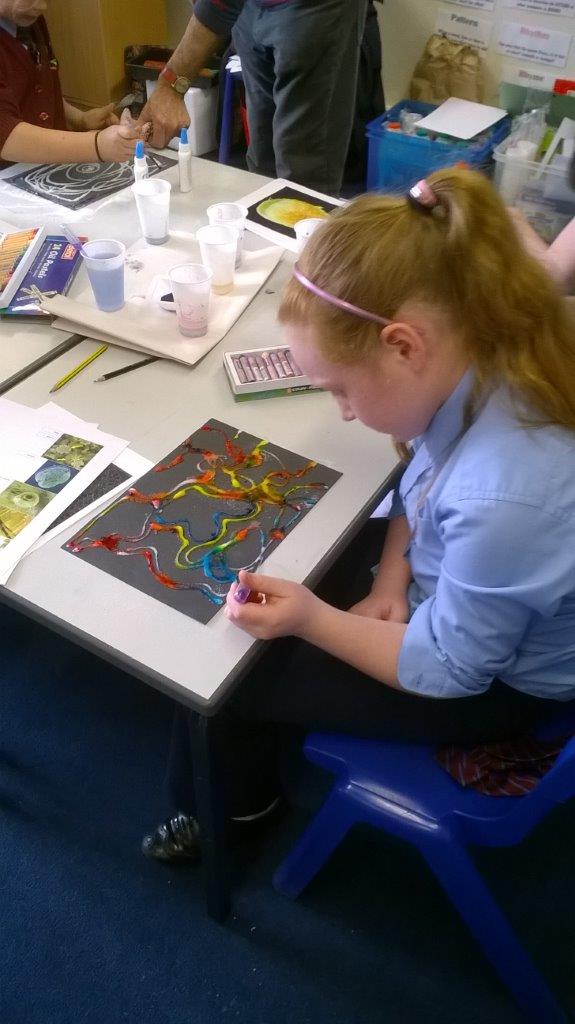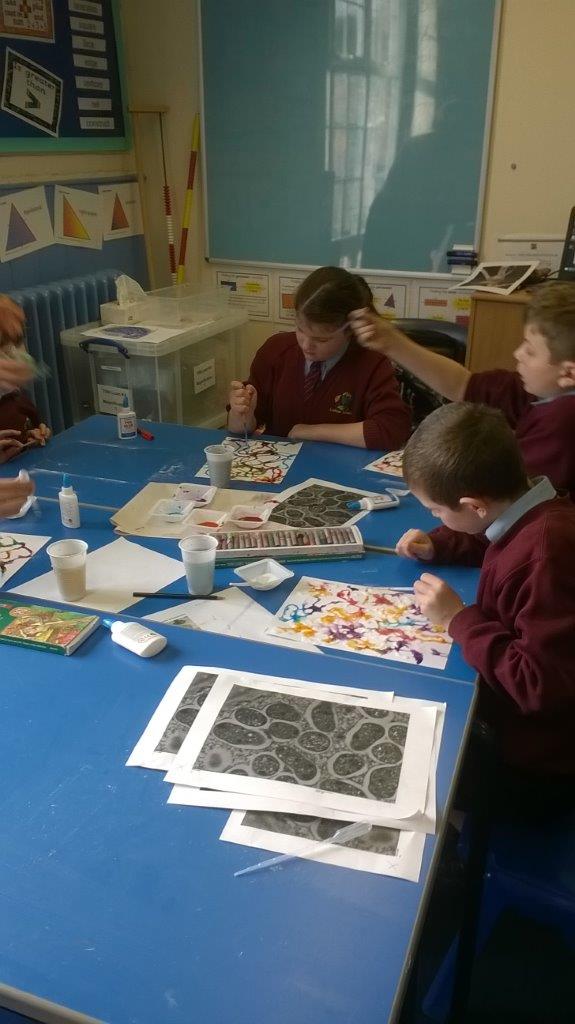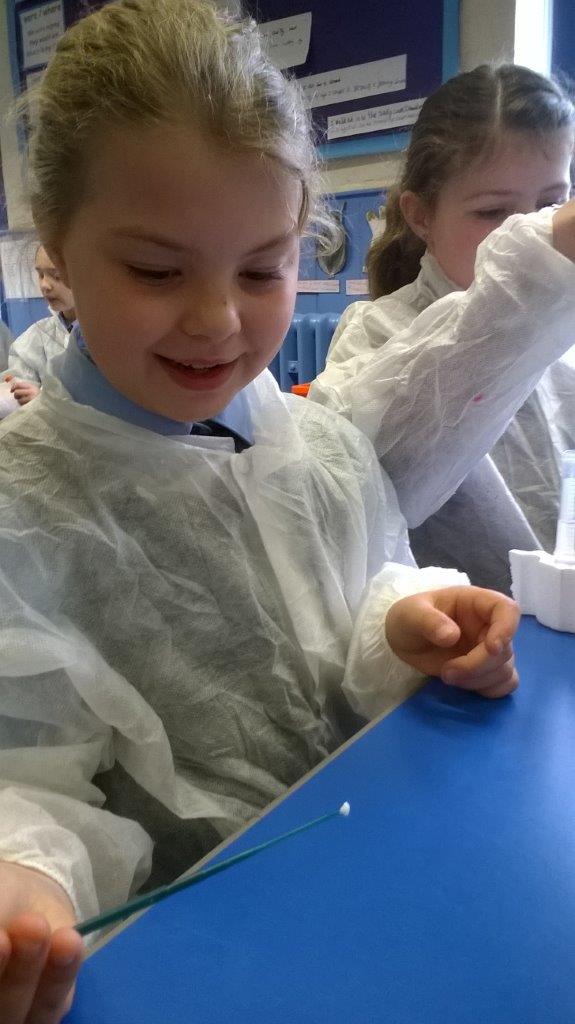Professor Tim Dafforn has been appointed as the new Chief Scientific Adviser at the UK’s Department for Business, Innovation and Skills. Professor Dafforn took up his post on June 1st, and he succeeds Professor John Perkins CBE.
Read more at the SynBioBeta blog
KTN: Synthetic Biology Special Interest Group Lead (closes 19 June 2015)
The Knowledge Transfer Network is a non-profit organisation that is funded by Innovate UK to be the UK’s innovation network across a wide range of sectors. Our main role is to bring together businesses, entrepreneurs, academics and funders to develop new products, processes and services. We are looking for an enthusiastic individual to join our team to deliver the strategy and activities of the synthetic biology special interest group which was set up to help translate the world-leading research in the UK into commercial applications and to deliver the key recommendations of a strategic roadmap.
More info on the position via the KTN Jobs site
Research Associate/Fellow – Mathematical/Computational Modelling, Nottingham SBRC (closes 18 June 2015)
The aim of the post is to provide research support for the BBSRC/EPSRC Synthetic Biology Research Centre (SBRC) in the creation and exploitation of gas fermenting microbial chassis as it relates to the sustainable production of chemicals and fuels. SBRC Nottingham is one of three UK centres created by the BBSRC/EPSRC in 2014 and has received £14.3M in funding for a 5 year period. We are recruiting exceptional post-doctoral researchers to join the modelling and analysis team. The team will conduct cutting edge research into novel computational and mathematical modelling and analysis approaches and development of an integrated software suite to facilitate the rapid development of microbial chassis able to produce a range of platform chemicals. We seek individuals who will focus on biochemical/synthetic biology modelling, whose responsibilities will include development of synthetic biology devices and modelling of biochemical pathways. More info from jobs.ac.uk
GARNet-OpenPlant CRISPR-Cas Workshop: 7-8 September, John Innes Centre, Norwich
The first day of the workshop is targeted at those wishing to learn the basics of CRISPR-Cas genome editing technology, as well as those who are already aware of it but wish to learn more about recent developments and advances. This is a day of conventional presentations mixed with opportunities for networking with fellow researchers interested in using this technology to benefit their research.
Speakers have been selected who work with a variety of plant species and will demonstrate the broad potential of CRISPR-Cas as a transformational technology in the plant sciences. Speakers include Holger Puchta (KIT, Germany), Bing Yang (Iowa State University, USA) and Vladimir Nekrasov (The Sainsbury Laboratory, UK). A full program will be available shortly.
An open access review describing this technology has been recently published by the event's organisers (link opens PDF): http://www.kamounlab.dreamhosters.com/pdfs/COB_2014.pdf
The second day of the workshop on September 8th will be a 'hands on' in-silico session that will be limited to 22 attendees. This portion of the workshop will be led by Dr Nicola Patron who is Head of Synthetic Biology at The Sainsbury Laboratory in Norwich, and will provide participants with the opportunity to learn how to identify and pick genomic targets, build modular CRISPR constructs and screen edited plants.
Preference for this event on the 8th September will be given to early-career researchers who can clearly illustrate how this event would benefit their research. People interested in attending the second day of the workshop should contact Ruth Bastow explaining how they might use this technology in their research.
For further discussions and networking opportunities a Conference Dinner will take place after the first day of the workshop and is available to all attendees, whether or not they are participating in the second day of the event.
For those requiring accommodation, a block booking of rooms has been made at Broadview Lodge. To book a room either call 01603 591930 or email broadviewlodge@uea.ac.uk. Please quote 'GARNet Ref: Kx36312' when making your booking.
For any further questions about the workshop please contact Ruth or Nicola Patron.
IndieBio SF - now $250k per startup
From the SynBio Beta blog:
IndieBio, SOSventures dedicated biotech accelerator, upped the ante for new startups today by announcing it will put $250k into each new company that comes through its program. The seed stage incubator which will be ready for the new class in September, currently has two labs in San Francisco, 4000 sq ft in Dogpatch and 6000 sq ft on Jessie Street near the Mission.
The $250k comes with $200k in cash and $50k in program and support, and each batch, or group of companies completes the four month program which comes with mentorship, lab space and a weekly series of talks.
EUSynBioS: growing networks in Synthetic Biology
Half a year after its establishment, the student-led initiative embraces a membership base of several hundred students and postdoctoral researchers based in 15 European countries, is supported by an Advisory Board composed of 20 accomplished principal investigators (including Dr Jim Haseloff and Dr Nicola Patron from Cambridge), and works closely with major partner organizations across the globe towards its overall goal: shaping and fostering a community of young researchers in synthetic biology by means of providing an integrative central resource for interaction and professional development.
Co-sponsored by the Cambridge-based OpenPlant initiative, the EUSynBioS Steering Committee recently participated in the SynBioBeta London 2015 conference, where the Association was introduced to an international high-profile audience and hosted a social event in the evening. An OpenDiscussion satellite workshop chaired by Christian on the second day was well-attended by students, principal investigators, and representatives from the UK research councils BBSRC, EPSRC, and the Dstl alike. He comments on the session: “We are hopeful that bringing students, principal investigators, and representatives from funding bodies into the same room like this will lead to new opportunities for the next generation of young researchers to be better involved in shaping the future of their discipline.” To foster collaboration and exchange among students and postdoctoral researchers in the field, Christian and colleagues are working towards an international symposium for the young synthetic biology community to be hosted in Europe in the near future.
Students and postdoctoral researchers active in synthetic biology can become Members of EUSynBioS by completing a short online form at http://www.eusynbios.org.
Refreshed Version of the UK Synthetic Biology Roadmap: workshop on 16 June
Read more on the SynBioBeta blog
OpenPlant stand at Festival of Plants
Cambridge University’s Botanic Garden hosts a Festival of Plants in May that provides the public with an opportunity to explore the diversity of flora and also find out how this important resource contributes to scientific plant research locally and globally.
We presented accessible activities to explain some of our research goals and how they might impact on society.
Through taking time to explain and discuss our projects at events such as this, people feel more confident to take a positive interest in the process and potential outcomes. It also gives us an opportunity to hear people’s thoughts on our research goals that we can then reflect upon.
Training course: Synthetic Biology: From pro- to eukaryotic systems (SYNBIOSYS)
Copenhagen Plant Science Centre PhD Summer Course
Synthetic biology is the engineering of biology: the deliberate (re)design and construction of novel biological and biologically based parts, devices and systems to perform new functions for useful purposes, that draws on principles elucidated from biology and engineering.
In this context prokaryotic and eukaryotic organisms like bacteria (e.g. B. subtilis or E.coli), yeast, microalgae or plants are interesting since they hold the promise for truly sustainable production of high-value compounds like pharmaceutical, commodity chemicals or even fuels. Traditionally the organisms of choice for synthetic biology have been E. coli and yeast. However, in the future synthetic biology in plant science will have a great potential both for redirecting and engineering of new biosynthetic pathways as well as for improving yield of our crop plants. In this field, the University of Copenhagen is among the leading institutions.
Scientific content
- Choice of organisms (chassis): (cyano-) bacteria (B. subtilis, E.coli, Synechocystis), yeast, algae, higher plants (chloroplasts).
- The parts: Promoters for regulated expression, transcript and protein stabilization and modifications, vectors, neutral integration, DNA synthesis, flip elements for on-off gene expression regulation.
- Cloning and high-through-put methodologies: cloning methods, gene stacking, gene replacements.
- Bioreactors: types (closed, open ponds, etc.), designs of growth regimes (continuous versus batch), harvesting methods and product recovery.
- Downstream processing: product extraction, stabilization and quality control
- Ethics in synthetic biology.
- Safety and regulations.
- Intellectual property rights (IPR)
Price: 1500 DKK. Lunch and coffee/tea is included.
Registration: To register for the course please fill in the registration form and send to Lene Rasmussen lras@plen.ku.dk
Jonathan Jones elected to US National Academy of Sciences
 Professor Jonathan Jones, Group Leader at The Sainsbury Laboratory and OpenPlant PI, has been elected as a foreign associate to the US National Academy of Sciences in recognition of his outstanding career researching plant-pathogen interactions.
Professor Jonathan Jones, Group Leader at The Sainsbury Laboratory and OpenPlant PI, has been elected as a foreign associate to the US National Academy of Sciences in recognition of his outstanding career researching plant-pathogen interactions.
The post Jonathan Jones elected to US National Academy of Sciences appeared first on The Sainsbury Laboratory.
SynBioBeta post on OpenPlant: Open Technologies for Plant Synthetic Biology
Reposted from the SynBioBeta Blog
Plant synthetic biology has great potential to improve sustainable bioproduction of globally important products; from foodstuffs to fibres to drugs. Advantages of plants over engineered microbes include their worldwide cultivation, their harvest on a giga-tonne scale and the existing precedent for genetically modified crops in many parts of the world. In addition to these applied benefits, plants raise interesting scientific questions and technical challenges around engineering pathways and interactions in multi-cellular, differentiating and developing organisms, adding complexity to current microbial experiments.
Plant synthetic biology is a young field and requires the development of tools and techniques to deal with additional complexity, such as improved genome editing, DNA synthesis and assembly at chromosomal or genomic scales. Supply of plant DNA parts is expected to increase rapidly, which is why the sharing and characterization of these components is a priority; particularly in the liverwort Marchantia, which appears to be a promising candidate for a plant synthetic biology model organism. Tools identified as necessary to support these developments include hardware and software for automation of high-throughput assembly and characterization, plant-relevant software models, data repositories and standards to increase interoperability of the parts and their associated data.

Right: Image of Marchantia
The OpenPlant initiative is a BBSRC-EPSRC funded synthetic biology centre, based at the University of Cambridge, the John Innes Centre and The Sainsbury Laboratory in Norwich, that aims to address these foundational requirements and then apply them to engineer traits including plant metabolic pathways and natural product synthesis routes. Applications include input to major programmes addressing grand challenges for energy and food security. For example, carbohydrate engineering for improved yield of biofuels or studying Marchantia to inform a synthetic approach to nitrogen-fixing in cereals, where it could have major implications for fertilizer use. Metabolic diversity in plants supplies us with important drugs, flavorings and agrochemicals in addition to impacting plant ecology and protection, so another OpenPlant project concerns optimizing enzymes and engineering gene clusters to synthesize these compounds.
OpenPlant aims to shape working practices and norms in these early stages of plant synthetic biology, by promoting interdisciplinary exchange, the development of standards and responsible innovation. It promotes an ecosystem of open technologies giving researchers and small companies greater freedom to operate within a two-tier IP system. IP-free circulation of foundational tools and DNA parts should accelerate uptake, innovation and entrepreneurship; allowing exploration of new models for decentralized ownership, control and manufacture of synthetic plant technologies. Protecting inventions representing novel combinations and applications of these low-level components preserves investment and retains commercial prospects, while also promoting alternative business models.
Innovation in plant biotechnology, particularly in high-value areas such as crops, is increasingly constrained by intellectual property (IP) protection, sometimes restricting access to genetic tools. This can impede the ability of innovative synthetic biology programmes to succeed. Commercial entities from entrepreneurial startups to large multinationals already struggle through patent thickets when bringing products to market and both academic-industrial exchange and sharing among researchers is restricted by terms and conditions in materials transfer agreements. OpenPlant experiments with openness as a means to aid innovation, particularly as the scale of DNA systems increases and the number of parts and tools involved in creating an engineered organism grows. Openness also offers greater access to research tools for the development of synthetic plant products that have implications for global sustainability and international development, and that may rely on decentralized projects to address local needs.
These efforts are part of a broader ongoing exploration of open practices and commons-based knowledge production among many communities. Open source strategies have proved fruitful in software and computing, from multimillion dollar commercial companies such as RedHat built on the basis of openly distributed code, through to projects such as the Raspberry Pi and its associated open software interfaces, which are wildly popular among educators and makers, including scientists. CERN, a scientific organisation with a strong history of successful technology transfer, heavily promotes open source hardware projects. Their repository hosts over 100 projects, with 16 companies actively engaged in testing or producing hardware based on technologies developed at CERN.
Open research practices have been promoted at the grassroots of several academic communities and are fast becoming a focus of funding agencies hoping to leverage their potential for accelerating research and innovation and reducing inequities in access to knowledge. One project employing an approach analogous to OpenPlant is the Structural Genomics Consortium, a public-private partnership for drug discovery that restricts IP protection of any results until the later stages of clinical trials, thus moving the pre-competitive boundary later in the discovery pipeline. As per a recent evaluation report, its open access approach is considered a significant incentive for investment by commercial partners owing to better facilitation of downstream research and increased competitiveness further down the value chain. The benefits of sharing were felt by the companies involved to outweigh any risks and associated with late-stage IP protection. Other projects such as Open Source Malaria have also described how open approaches accelerated their research, including via industrial partnerships.
In summary, OpenPlant is performing cutting edge synthetic biology research while also exploring the potential of open technologies by engaging with diverse partners, building communities and providing incentives for open projects, such as seed funding. We will document and share what we learn from our approach to promoting innovation and entrepreneurship alongside the technologies and scientific results arising from our research. We welcome feedback from the SynBioBeta community!
Summer School in Plant Microbe Interactions
In August this year, The Sainsbury Laboratory will be hosting it’s second Summer School in Plant Microbe Interactions. Running over two weeks from the 17th to the 28th we will cover key topics and techniques.
The TSL Summer School will feature extensive practical training in cutting edge techniques and stimulating discussions on the latest thinking and discoveries in the field, all led by our Group Leaders and their groups and exciting invited guest speakers. The course will be ideal for students new to the field and those looking to get an understanding of the breadth and quality of work across the whole of the Plant Microbe Interaction community.
More information can be found at summerschool.tsl.ac.uk
Johns Hopkins University launches online SynBio ethics course
About the Course
 Synbio is a diverse field with diverse applications, and the different contexts (e.g., gain-of-function research, biofuels) raise different ethical and governance challenges. The objective of this course is to increase participants’ awareness and understanding of ethical and policy/governance issues that arise in the design, conduct and application of synthetic biology. The course will begin with a short history of recombinant DNA technology and how governance of that science developed and evolved, and progress through a series of areas of application of synbio.
Synbio is a diverse field with diverse applications, and the different contexts (e.g., gain-of-function research, biofuels) raise different ethical and governance challenges. The objective of this course is to increase participants’ awareness and understanding of ethical and policy/governance issues that arise in the design, conduct and application of synthetic biology. The course will begin with a short history of recombinant DNA technology and how governance of that science developed and evolved, and progress through a series of areas of application of synbio.
Course Syllabus
Optional Pre-work: Synthetic Biology Primer
Week 1: History of Recombinant DNA
Week 2: Gain-of-Function Research
Week 3: Biofuels
Week 4: Environmental Remediation
Week 5: Human Health
Week 6: Governance
Content will be presented in many forms, including not only reading and lectures, but also recorded and live interviews and discussions with scientists, ethicists and policy makers. Learners will have the opportunity to think, write and talk about the issues and challenges in their own work and in real-life case examples. A final project will engage students in the development of governance models for synbio.
This 6-week course will consist of short (8-12 minute) topical modules that will be a combination of lecture, video content, recorded group discussions and interviews. Each module includes 1-3 integrated quiz and discussion questions.
Recommended Background
This course is targeted to trainees and professionals in synthetic biology, though others familiar with the science may also find the course interesting, accessible and useful. All materials are in English, so English reading and speaking proficiency is necessary.
Full details can be found here.
Open Source Hardware Development Method | Open Source Ecology
We are working on a methodology for accelerating open source hardware development, and we are calling out open hardware practitioners to collaborate
To increase our effectiveness in open hardware development, we are creating an Open Source Ecology Working Team on development workflows and standards. This is our Development Method Working Team. To do this, we are collating prior work on the topic of open hardware development and documentation by reaching out to existing open source hardware efforts. We are interested in the comprehensive process of open development, everything from documentation best practices, development workflows, and versioning strategies – to social and economic aspects of the process – such as team building, production engineering, open hardware enterprise development, and many others. If you are involved in open hardware development – please fill out this Survey of Development Workflows and Practices to provide feedback on what tools and processes you use. These results will be mede available to the rest of the open source hardware community.
read more...
Open Source Hardware Development Method | Open Source Ecology.
IRNAS :: Useful-source open hardware
Useful-source is a step beyond open-source for hardware, focusing on empowering, enabling reproduction and the use of such freely available designs by large populations. We are proposing this concept, to improve the current best practices and to make sure our developments are as useful as possible.
read more...
Biotechnology YES competition - closes 29 May 2015
The Biotechnology YES (Young Entrepreneurs Scheme) is a competition that provides training via presentations from leading figures in the biotechnology industry on all aspects of technology transfer and the commercialisation of bioscience ideas. This knowledge is then used by participants to prepare an oral business plan presentation for an ‘imaginary’ biotech start-up company. Participating teams present their business plan to a panel of business, financial and academic representatives taking the role of ‘Dragon’s Den’ style venture capitalists. Two teams from each workshop are selected to progress through to the final, where winners of the competition receive £2,500.
The MRC sponsors the competition to allow MRC-funded students and early career researchers to compete. There is a specific stream for participants with biomedical projects. We encourage you to make the most of this opportunity to raise your awareness of the commercialisation of bioscience ideas.
For more details and how to apply, visit the biotechnology YES pages.

Newton Researcher Links workshop grants - deadline 13 July 2015
Link to original call >>
If you are interested in applying in relation to OpenPlant, please contact Jenny and Colette.
The British Council, working with the Higher Education International Unit, have opened a call for proposals for workshop grants under the Newton Researcher Links programme, a part of the Newton Fund.
This element of Newton Researcher Links provides financial support to bring together a UK/partner country bilateral cohort of early career researchers to take part in workshops to:
- build research capacity in developing economies
- building links for future collaboration
- enhancing the researchers’ career opportunities
The Newton Fund is part of the UK’s official development assistance programme. Through the Newton Fund, the UK will use its strength in research and innovation to promote economic development and social welfare of partner countries.
KEY DATES
Deadline for applications: 16:00 UK time on 13 July 2015. Proposals submitted after the deadline will not be considered for funding.
The workshops must take place between 1st November 2015 and 31st March 2016.
PARTNER COUNTRIES
Brazil, Malaysia, Thailand, Russia*.
*Russia is not a Newton Fund country and is a part of this call outside of the Newton Fund. The application process is the same, however there is no need to articulate the relevance of the application to economic development and social welfare where the partner country is Russia.
SynbiCITE Proof of Concept Funding Call Opens (Deadline 19 June 2015)
The second Round of applications for SynbiCITE Proof of Concept Funding opens from 1st May 2015.
- Deadline for entries: 19 June 2015
- Latest assessment by 1 August 2015
- Potential projects start by 1 September 2015 (or 1 July for fast-tracked projects submitted by 15 May 2015)Projects submissions will be assessed in the order they are received so you are encouraged to submit as soon as you are able.
Download Guide to Submission
Download Application Form
SAW Project at Ludham Primary School
Dr Colette Matthewman, project manager of OpenPlant, Norwich, worked with writer Mike O'Driscoll and artist Chris Hann to design and deliver a brand new SAW project with a year 5 class at Ludham Primary School. SAW projects extend science learning into poetry and art, inviting children to generate personal responses to the science concepts where they discover new perspectives of the world and broaden their horizons.
Children got hands-on with DNA extraction, played a game to learn Mendel's Laws of Inheritance and were shown how model plants such as the simple liverwort Marchantia enable scientists to study traits that are found in more complex plant species.
The poetry session produced some excellent work that reflected the children's understanding of the link between DNA and genetic differences. The children learned about root nodules during the science session and so the art used these structures as a starting point for work with oil pastels, glue, salt and colour pigments. Root nodules are specialised structures produced as a result of a symbiosis between certain plant species and bacteria in the soil that enable the plant to fix atmospheric nitrogen, giving plants a significant advantage in nitrogen poor soils.
http://www.sawtrust.org/in-schools/openplant-saw-project-at-ludham-primary-school/

![[Closes 24 Nov 2107] Apply now to the OpenPlant Fund!](https://images.squarespace-cdn.com/content/v1/54a6bdb7e4b08424e69c93a1/1509564315902-TUO4I6QRWI9TT8UGSIAJ/OpenPlantTwitter_400x400+%281%29.jpg)

![[Closes 7 Mar 2017] OpenPlant Research Associate (Haseloff Lab)](https://images.squarespace-cdn.com/content/v1/54a6bdb7e4b08424e69c93a1/1486552818859-FH76MCA8SMFU93WB85RX/OpenPlantTwitter_400x400.jpg)





